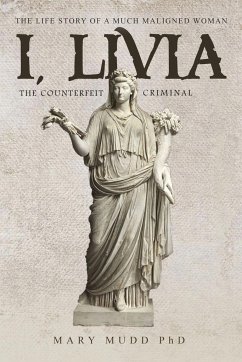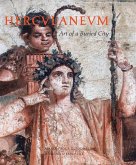A historical tradition of Roman origin represents Livia Drusilla, the third and much-beloved wife of Caesar Augustus, as a conniving, Borgia-like criminal. This view of Livia maintains that to promote the political career of her son by her former husband, Livia killed or incapacitated Augustus' descendants through his previous wife. Author Robert Graves, in his famous novel, I, Claudius, based his fictitious rendering of Livia upon this malevolent representation of her. The conceit is patently wrong, and essentially all modern scholars of Roman history reject it. But thanks to Graves' immensely entertaining book, and the British Broadcasting Corporation adaptation of it for television, the image of Livia as a devious dynastic murderess prevails in the popular mind. I, Livia: The Counterfeit Criminal aspires to correct the misconception, and present an accurate assessment of this much-maligned woman. The study's comfortably readable style is intended for general audiences. The ¿rst three chapters present a biographical sketch, focused upon Livia's public life. Livia was accepted as an extraordinarily visible, dynamic and in¿uential political personage, by a society and culture which maintained women must con¿ne their activities childrearing and other domestic pursuits. The following two chapters demonstrate the absurdity of Livia's criminal reputation, and offer explanation for its development. Three subsequent chapters seek Livia's private side - her habits, tastes, and interpersonal relationships. Livia (who suffered from colds and chronic arthritis) was an amiable soul with a self-deprecating sense of humor. She was a loving, supportive, forbearant wife and mother, an intellectual with profound political insights, an enthusiastic traveller, a connoisseur of art. Although generally patient and demure, she could also be impulsive, assertive, opinionated and, especially in later life, petulant. The ¿nal chapter examines how Livia became, and remained, a symbol of Roman imperial power. The brief epilogue describes the physical appearances of Livia and the members of her family. Also included are relevant appendices, a comprehensive bibliography, and color images of surviving wall paintings from her homes.
Hinweis: Dieser Artikel kann nur an eine deutsche Lieferadresse ausgeliefert werden.
Hinweis: Dieser Artikel kann nur an eine deutsche Lieferadresse ausgeliefert werden.








